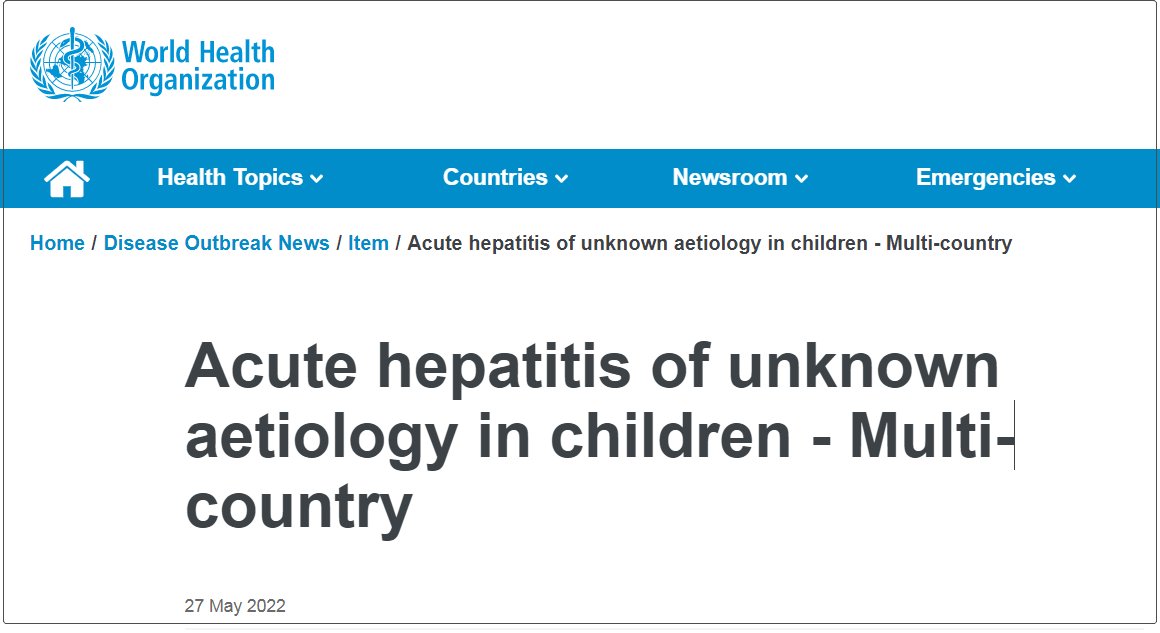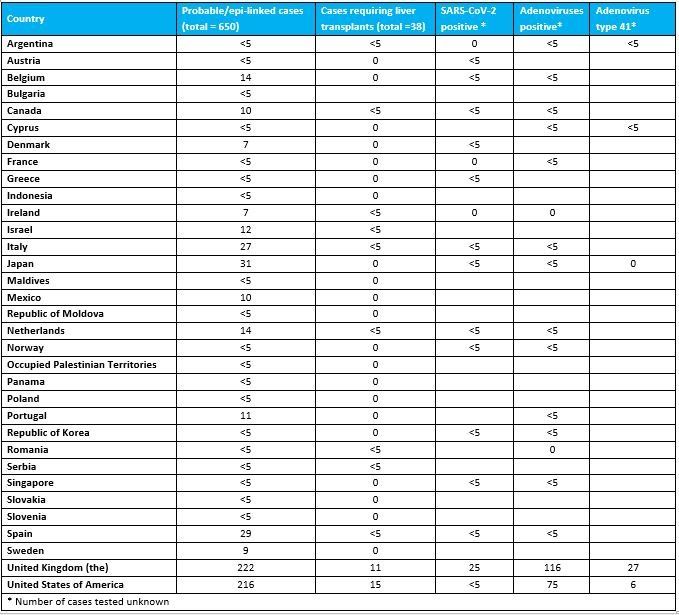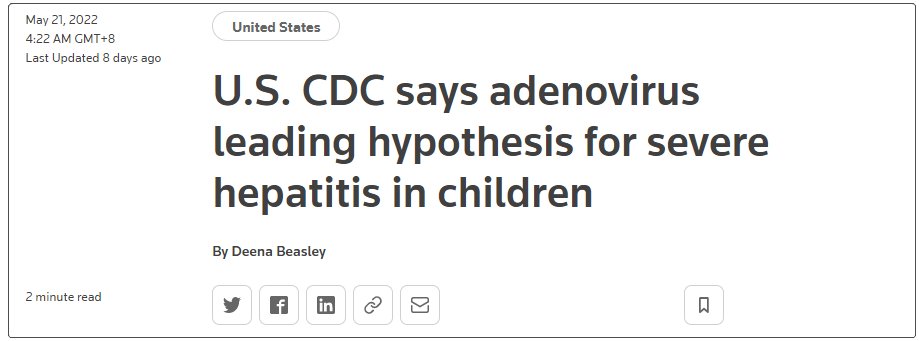(Observer Network News) According to the World Health Organization (WHO) local time on the 27th, from April 5th to May 26th, 33 countries and regions have reported 650 cases of children with unexplained acute Suspected cases of hepatitis.

Multinational: Acute hepatitis of unknown etiology in children. Source: WHO
The report shows that at least 38 of the children required liver transplants, and there have been 9 deaths, the cause of which is still unknown.
According to the World Health Organization’s European Regional Office (EURO) and the European Centre for Disease Control and Prevention (ECDC), most of the cases are from countries in the WHO European Region, with 222 suspected cases reported in the United Kingdom and Northern Ireland, with 75.4% of cases aged less than 5 years old.
Of the 156 cases with hospitalization information, 22 (14.1%) were admitted to the intensive care unit and 14 (12%) underwent liver transplantation.
At the same time, 181 cases were tested for adenovirus, of which 110 cases (60.8%) were positive, and the positive rate of whole blood samples was the highest, 69.5%.

Probable cases reported by countries from October 1, 2021 to May 26, 2022. Source: WHO
On the question of whether adenovirus is associated with acute hepatitis in children, the WHO report shows that adenovirus is found in about 75% of cases in the UK, but the majority of cases have been confirmed as adenovirus type 41 (infected people usually have diarrhoea, vomiting, fever, and respiratory symptoms) and adeno-associated virus-2 (AAV-2).
However, the WHO stated in the report that due to incomplete sampling and limited testing capabilities, the current apparent association between these cases and adenovirus may only be an “accidental”, most likely due to the strengthening of laboratory testing for adenovirus and adenovirus. associated with increased levels of community transmission of the virus.
The association of adenovirus needs to be further elucidated as adenovirus testing expands to other cases outside of Europe and the US, and results from a case-control study currently underway by the UK Health Security Agency are reported, the report said.
Adenovirus infection is one of the “leading hypotheses” for recent cases of severe hepatitis of unknown cause in children, U.S. health officials said on Tuesday, and that adenovirus-related hepatitis is almost exclusively associated with immunocompromised children.

The CDC says adenovirus is one of the ‘leading hypotheses’of severe hepatitis in children. Source: Reuters
It is reported that compared with previous cases of unexplained childhood hepatitis, the reported cases during this time have more severe clinical symptoms and a higher rate of acute liver failure, and the WHO has assessed the global risk as moderate. The Centers for Disease Control and Prevention (CDC) reminds parents to look out for the following symptoms: Fever, fatigue, loss of appetite, nausea, vomiting, abdominal pain, joint pain, jaundice (yellowing of the skin).
According to a report by CBS on the 28th, they released the status of Baelyn Schwab, a 2-year-old child with acute hepatitis. Her parents underwent a liver transplant at a local children’s hospital after discovering their daughter had been diagnosed with severe hepatitis.

Global report of 650 cases of acute hepatitis of unknown etiology in children, WHO: Adenovirus linked or accidental. Source: CBS
Behring’s mother, Kelsea Schwab, said: “Her (illness) came on very quickly, everything was thrown into chaos, and we watched as the child’s health deteriorated overnight.”
In early May, reports from BMC and Chandigarh Medical Research Institute in Sagar, India, that the institute surveyed 475 children who tested positive for Covid-19 between April and July 2021 , 37 of whom had “childhood-associated hepatitis” (CAH-C).